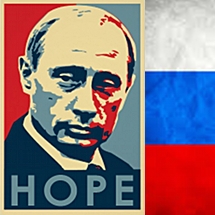Russian Online Poker Could Generate $150m In Annual Gaming Taxes

After years of clamping down on online poker and vowing to block international gambling companies from operating inside its territory, Russia now seems to be performing an about face and considering regulating online poker.
The surprise news was announced after Russian business daily Kommersant reported that First Deputy Prime Minister Igor Shuvalov had instructed the Finance, Economic Development and Justice Ministries to investigate and produce a report on the potential of a regulated online poker market by July 21st.
Russian 2009 poker crackdown
Russia’s apparent U-turn is in stark contrast to the anti-online poker stance the country has adopted in the past, including producing an infamous black-list of gambling-related sites blocked from the country, naming such major gaming concerns as Pokerstars, Ladbrokes, SportingBet, UniBet, Betway and TitanPoker.
Interestingly, poker was legal in Russia and in 2007 was even considered to be an official sport by the Federal Sports Agency, until 2009 saw a government “anti-vice” clampdown targeting smoking, underage drinking, and all forms of gambling, including the numerous poker clubs spread out across the vast country. Ever since, legal gambling has only been permitted inside four approved “gambling zones” located in remote areas away from the big cities.
Following the draconian measures, Former Chairman of the Federation Council, Sergei Mironov, commented: “Thank God, the national leadership is good on its pledges and the gambling plague has been prohibited in Russia since July 1.”
Russians still enjoy intellectual aspects of game
In spite of the government’s negative stance, however, Russian players are well known on the international circuit with players such as Igor Kurganov, Ivan Demidov, Vitaly Lunkin, Alexander Kravchenko, and Vladimir Geshkenbein noted for their tournament successes. Back in 2008, for instance, Ivan Demidov narrowly missed out on a WSOP Main Event title after finishing the runner-up to Peter Eastgate for a $5,809,595 payday.
In the same way as chess is seen as an intellectual game in which the country can demonstrate its perceived cultural superiority over the West, poker, too, is viewed by Russian players as a source of national pride. Russian players also make up a significant proportion of the online poker global market.
Consequently, the enthusiasm Russian’s hold for the game have not diminished in spite of the government’s ban, and in October 2013, a study carried out by the All-Russia Centre for the Study of Public Opinion revealed 42% of respondents viewed poker as an intellectual game. That figure rose to 85% for internet users, with the bulk of those surveyed not associating poker too closely with gambling.
Russian U-turn
Deputy Finance Minister Alexei Moiseyev has now confirmed that his department is currently looking into potential legalization, although he has so far declined to comment on the issue.
According to one source, however, the Government’s U-turn has successful been influenced by the lobbying efforts of Kakha Kakhiani, president of the country’s Poker Union. Amongst his arguments, Kakhiani has pointed at strong performances by Russian pros at premiere live poker events around the world, which apparently appealed directly to President Putin’s sense of national pride.
In addition, the Russian economy is currently on the brink of stagnation with GDP up by just 1.3% last year. This year that figure is expected to drop to 0.5% as international sanctions in response to Putin’s Crimea annexation start taking effect. As reported in wsj.com, this week:
“Investment continues to decline and the rate of inflation, fueled by a sharp weakening of the ruble in spring, reached 7.8% last week, well above the central bank’s forecast of 6%. Capital outflow reached $80 billion in the first five months of the year and is expected to exceed $100 billion for the whole year.”
The Russian government has also been criticized for its over dependence on its energy industry, and so embracing online poker could represent a step in the right direction in terms of modernizing and diversifying its economy. According to one source, legalized online poker could generate an extra 2 to 3 billion rubles in taxes in its first year, rising to 5 billion rubles ($150 million) within three to four years.
At this early stage it is unclear whether Russia would opt for an open market policy or prefer, instead, a monopolistic framework. However, any interested online operator would have to agree to locate its servers inside Russia after the Russian parliament passed a “China-like” bill, this week. Slated to take effect by September 2016, global online services such as Facebook, and Google would be affected by the bill’s provisions.










